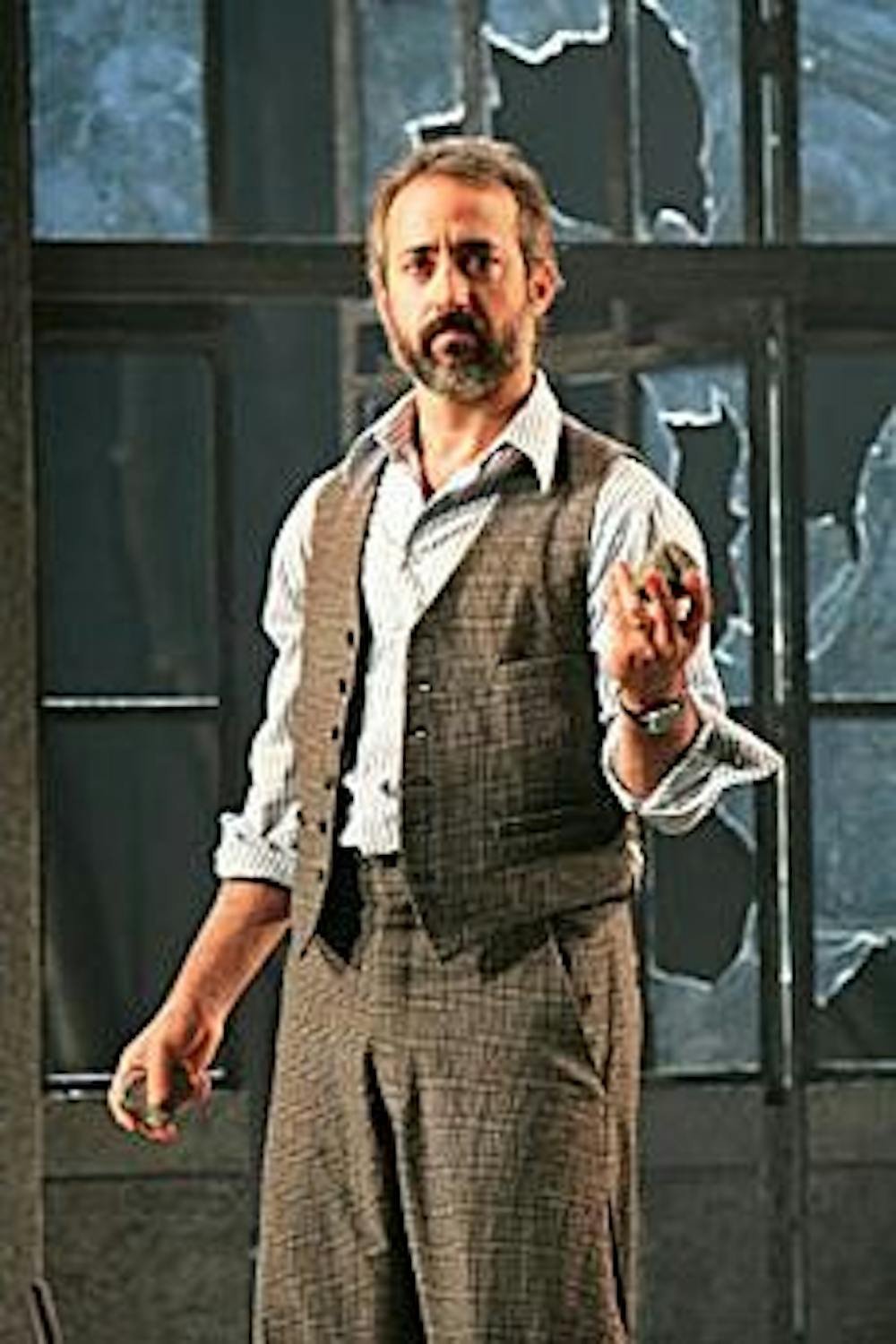A stirring production of Norwegian playwright Henrik Ibsen's "An Enemy of the People" captured the attention of the matinee crowd at the Shakespeare Theatre and held the audience enthralled until the final scene. Written over a century ago, a superb cast reinvigorated the play and emphasized the pertinence of its themes in the modern world.
"An Enemy of the People" details the story of Dr. Thomas Stockmann (Joseph Urla), an idealistic intellectual and his discovery of the terribly polluted water in the town's new successful public baths. Expecting to be praised for performing a public service for the community, Dr. Stockmann is shocked when the townspeople - especially the editors at the liberally oriented newspaper and his brother Peter, the mayor - turn against him.
Urla's outstanding portrayal of Dr. Stockmann showcases all the passion of a man with revolution on his mind and in his heart. He immediately impacts the audience with an honest and powerful representation of one man's crusade to deliver the truth to the public. His heated speeches and witty remarks give the production a vivacious quality.
Urla's emotional performance contrasts especially sharply with the conservative personality of Peter Stockmann (Philip Goodwin). Goodwin's stately depiction of the town's mayor emphasizes the conflict between the Stockmann brothers' opposing values of change and tradition.
The supporting cast also greatly contributes to the overall experience. Derek Lucci seems to struggle through the opening scene as Hovstad, the deceitful newspaper editor, but he soon finds his stride. Samantha Soule as Petra, Dr. Stockmann's idealistic daughter, and Rick Foucheux as Aslaksen, the newspaper printer and active citizen, both handle their roles with great presence and appropriate timing and gestures.
At times, the actors break the barrier between the audience and the stage. Actors walk through the aisles, speak from the balcony and, in one memorable instance, Foucheux shakes hands with a man as if he were a citizen and friend.
Ibsen's play masterfully probes into the political and social repercussions created by Dr. Stockmann's discovery. As society attempts to silence him through censorship in the press and forbids him to speak at a public gathering, Dr. Stockmann realizes that the corrupted bath water is not the only poisoned substance in town.
Also facing criticism in the play is the media. Rather than report the truth, the editors at the town newspaper cater to public opinion and alter their allegiances as power shifts in the town. The power of the media in the play, as in today's world, should not be taken lightly.
The sets, while not extravagant, lend an air of authenticity to the scenes of life in a late 19th-century Norwegian town. The costumes, similarly simple, accurately represent the time and place of the play's action.
The theater itself is moderately sized, but offers adequate views of the stage from all angles. Seats to the far left or right of the stage may be partially obscured, but any obstruction does not interfere with the main action of the play, and such seats are considerably cheaper.
Refreshments are available for purchase before the play and during a short intermission in the main lobby.
The Shakespeare Theatre Company's "An Enemy of the People" plays every night except Mondays through Oct. 22, with matinee performances on Saturdays and Sundays. The production lasts about one hour and 45 minutes, with one 15-minute intermission. Ticket prices vary depending on preferred seating and may be purchased online at www.shakespearetheatre.org.





